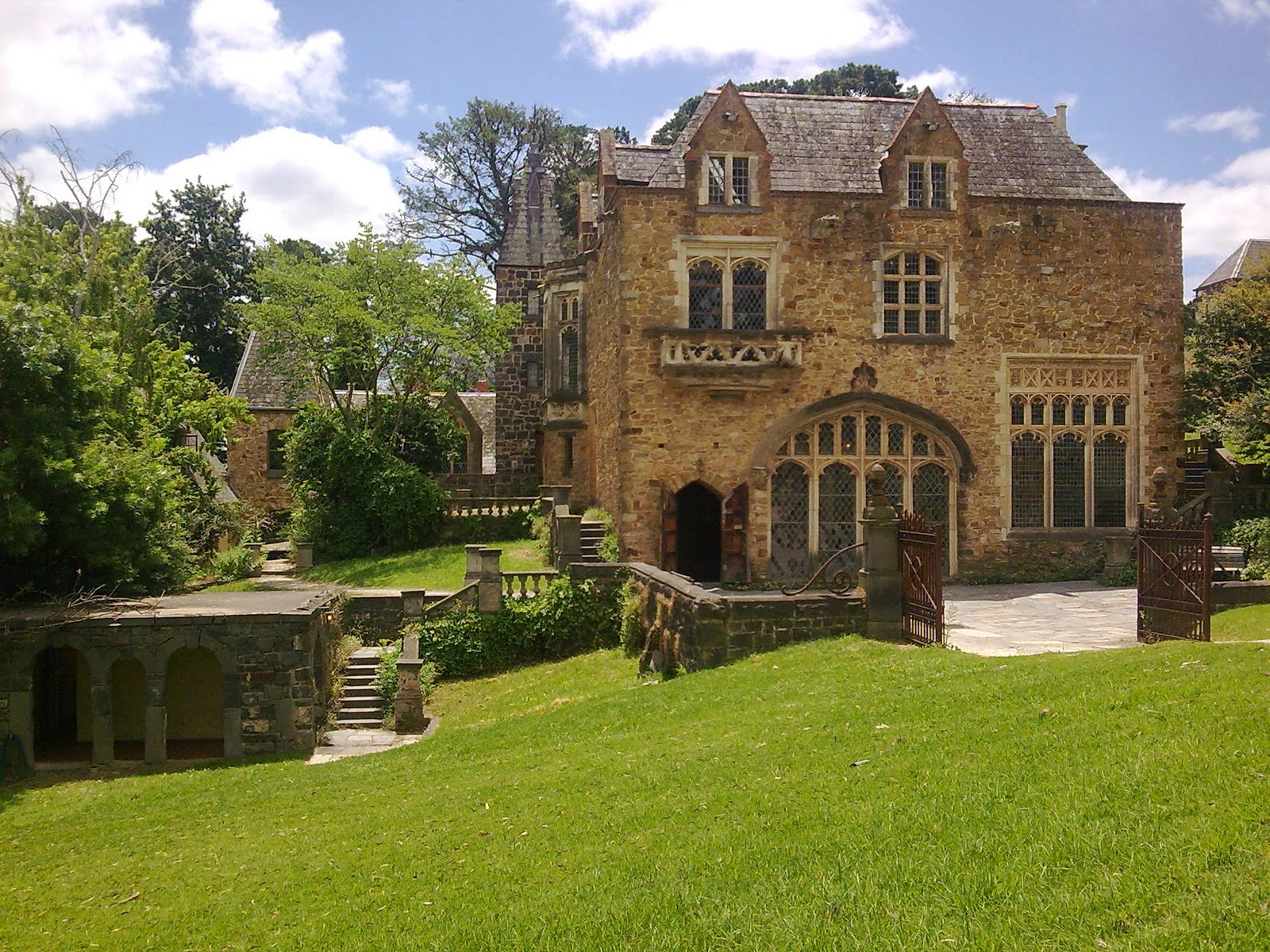I was curious to read the diary, having written some posts recently on Randolph Bourne, an American writer who, in 1916, emerged as the prototype of a modern, leftist intellectual. Was Burstall something like Bourne?
I haven't finished the diary yet, but the answer seems to be decisively no. Burstall wasn't really the same as the Bourne-like Australian intellectuals of the 1980s onwards.
What kind of picture emerges of Burstall from the diaries? There are a few positive things I can say about Burstall and his associates. They weren't effeminate. They set about building their own houses; some of them laboured for decades constructing the impressive buildings of Montsalvat, the Eltham artists' colony.
 |
| Some of the buildings at Montsalvat, Eltham |
Tim Burstall himself took a decision to start making films in Australia and helped to launch the modern Australian film industry. Nor were Burstall and his friends the supplicating types when it came to women; they were decidedly prefeminist in how they pursued women (radical feminists would have a heart attack reading some of the seduction scenes described by Burstall).
Burstall in 1953 was a member of the Communist Party. There was a very small branch of the party in Eltham (with about seven active members). What's interesting, though, is that Burstall seems out of place in the party (he resigned in the mid-50s). Burstall's political views were a type of left-libertarianism or anarchism, much more suited to the politics of the Sydney Push.
Why doesn't Burstall come across as a Bourne type intellectual? Burstall had the individualism and hedonism of the Greenwich Village types, but he didn't have as strong a "humanist" religion. I noted in the Bourne series, that there was a trend amongst American progressives early in the 1900s toward serving "humanity" as an ideal, and this meant sacrificing one's own closer identities and attachments in favour of a universal cosmopolitanism. The literati were thought to be the misunderstood, heroic avant-garde in achieving this aim.
There's a little bit of this in Burstall. He did believe that he had a duty to shift ideas in society and he supported open border positions. But it just doesn't seem to have been his religion. He records discussions with his friends in which some took a more nationalistic position and it doesn't seem to have bothered him that much (the main preoccupation still seems to have been life in Australia versus life in England). Nor did he take a view of himself and his literati friends as being the moral vanguard - he was honest in admitting his baser motives in life and he thought many of his associates were cut off from life.
He had a "flatter" view of things than Bourne. He had a terrific job which only required him to work a few hours a day; he would then catch up with his art friends for a long liquid lunch; he enjoyed discussing art and literature and the personalities of friends; apart from that, he dedicated some part of his life to his pursuit of mistresses.
It comes across as barren. The deeper experiences of life which inspire people have gone missing. His wife cheated on him early in his marriage; they subsequently decided to have an open marriage and he was good at attracting women. But it means that there is very little expression of love for his wife; nor does fatherhood seem to mean much to him. Even his liaisons with women seem devoid of emotional passion.
So far in the diaries there has been no expression of a love of nature, despite the semi-rural setting of his home life and his artistic leanings. There is no obvious love of his national tradition; as mentioned above, he took an internationalist view politically. He obviously enjoyed reading, but again there is little sense of a passionate connection to art. He was an atheist, so there was no connection to a church or to an experience of the transcendent.
He was masculine, but not to the point that he had a patriarchal sense of wanting to lead or to help order a family or community. It was expressed instead more coarsely in drinking and bedding women (and, more impressively, in leading the revival of the film industry, though his own films often featured men who drank beer and bedded women).
Overall, he was perhaps part of an inbetween generation of intellectuals - those who had lost an older faith, but who had not yet committed to the newer one suggested by Bourne.
No comments:
Post a Comment